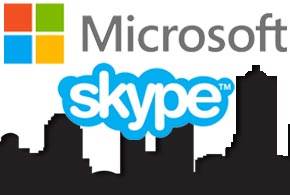Filipino and five other languages are added to the software’s text translation service and users can soon log in to additional Microsoft offerings.
Microsoft has added six new Austronesian languages to its text translation API, the company announced this week.
Now, users of the Skype desktop apps for Windows, trade instant messages with native Fijian, Filipino, Malagasy, Samoan, Tahitian and Tongan speakers. The languages are also available in the iOS and Android Microsoft Translator apps and Bing’s Translator feature. On the business front, Microsoft’s Translator is integrated into SharePoint and Yammer.
“Austronesian languages are spoken as far west as Madagascar and as far east as the Polynesian Islands; south to New Zealand and north to South China,” the Microsoft Translator team wrote in an Oct. 19 blog post. “Introducing these 6 Austronesian languages to Microsoft Translators, unlocks new communication opportunities for approximately 119 million Austronesian speakers across the globe.”
Today, Microsoft’s Translator tech supports more than 50 languages. Meanwhile, Skype Translator, the company’s real-time audio translation technology, supports a total of nine languages. Last week, the company added Russian to the roster of languages Skype can interpret during voice and video calls.
Not only can Skype users communicate with more users, but in the near future, they’ll be able to access more of Microsoft’s online offerings with the same user ID.
“We’ve been working to bring Skype and Microsoft closer together and are excited to announce that soon you will be able to use your Skype Name to sign into other Microsoft services like Xbox, Office and OneDrive,” wrote the Skype group in a blog post. “With a single sign-in (and an email address for certain services), you will soon be able to have fun on Xbox Live, access your photos and documents through OneDrive, check your email on Outlook.com, and connect with your friends and family on Skype.”
This week, Microsoft also provided an update to its overhaul of the Skype client for Linux. This summer, the company announced that it was replacing its long-in-the-tooth Skype 4.3 for Linux software with a client that uses WebRTC (Web Real-Time Communication), a browser-based audio, video and content-sharing technology.
On Oct. 17, Microsoft announced it had enabled one of Skype’s signature features on the new client: one-to-one video calling.
“As we’re still in Alpha, we’re releasing the feature slowly, so for the time being, it will only work on one-to-one video calls between Skype for Linux Alpha clients. We’ll be enabling other Skype platforms to receive calls from Skype for Linux Alpha in the coming weeks, so stay tuned,” blogged the Skype team.
For educators, Microsoft unveiled new virtual field trips for Skype in the Classroom. New destinations include a tour of World War 2 bunkers in the United Kingdom and Mount Rainier National Park in the state of Washington. Several other locations are available, including a dive to the Aquarius undersea lab and habitat off the coast of Florida, the Lisbon Zoo in Portugal and The Turtle Hospital in Florida. The full virtual field trip catalog is available here.







![[Interview] [Galaxy Unpacked 2026] Maggie Kang on Making](https://loginby.com/itnews/wp-content/uploads/2026/02/Interview-Galaxy-Unpacked-2026-Maggie-Kang-on-Making-100x75.jpg)